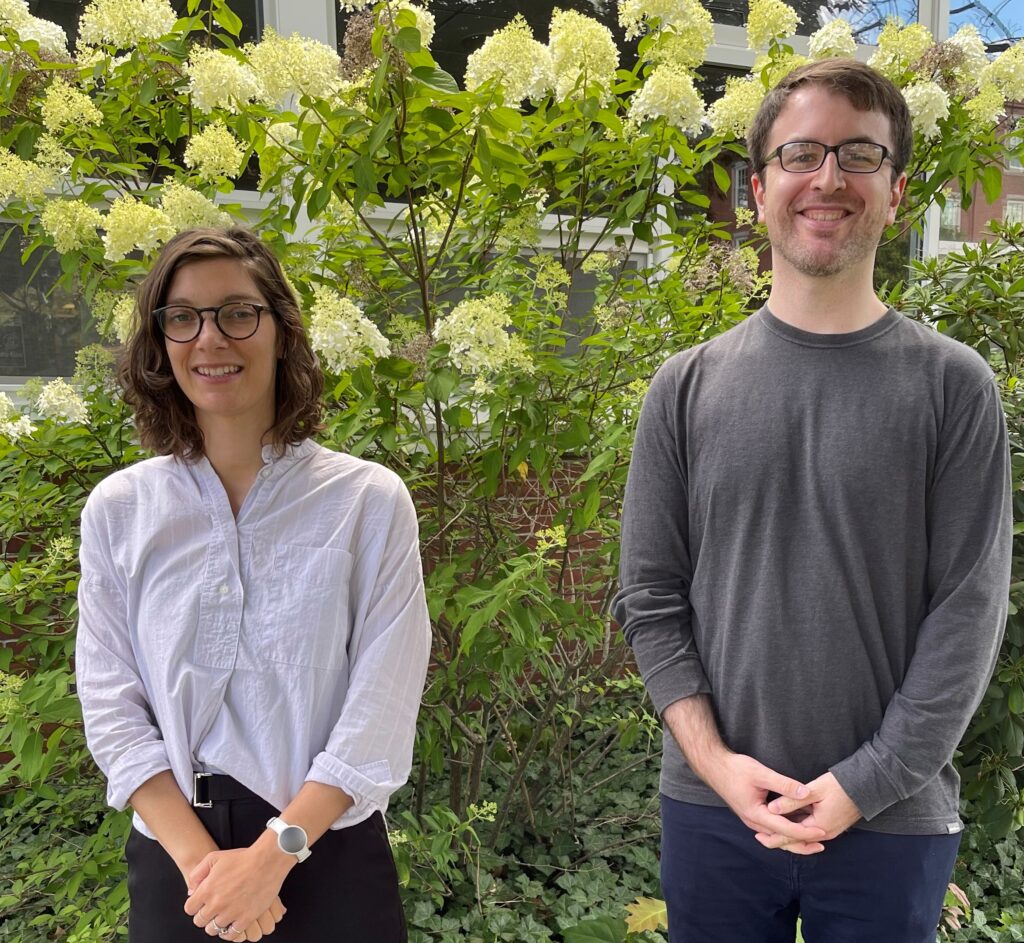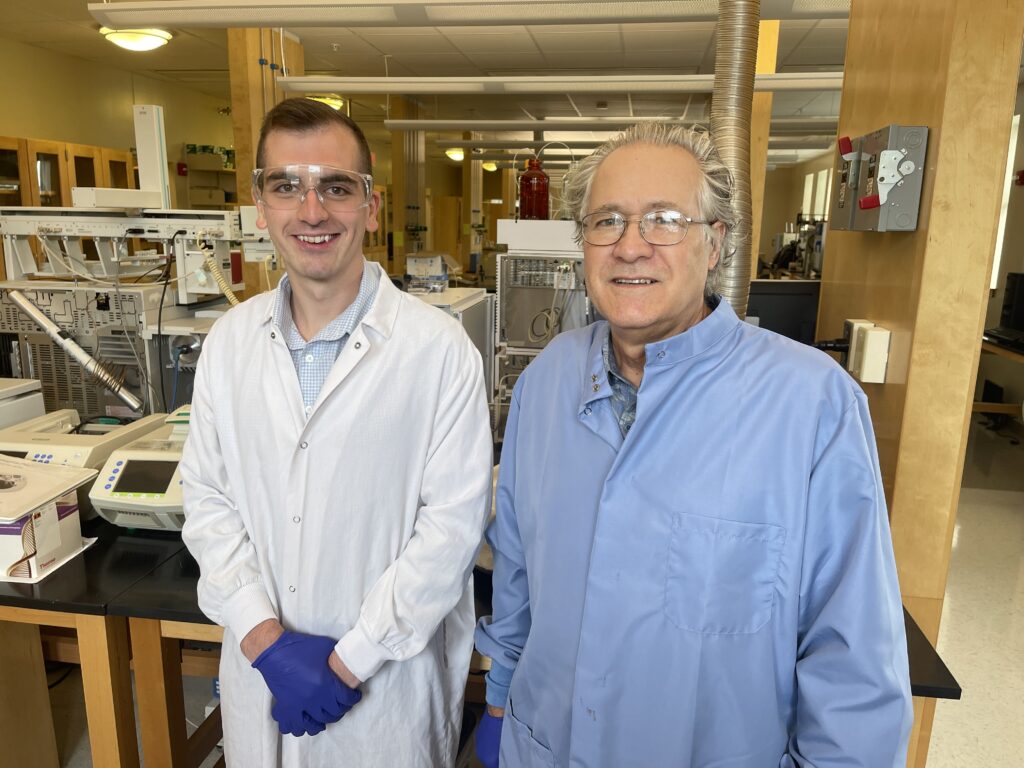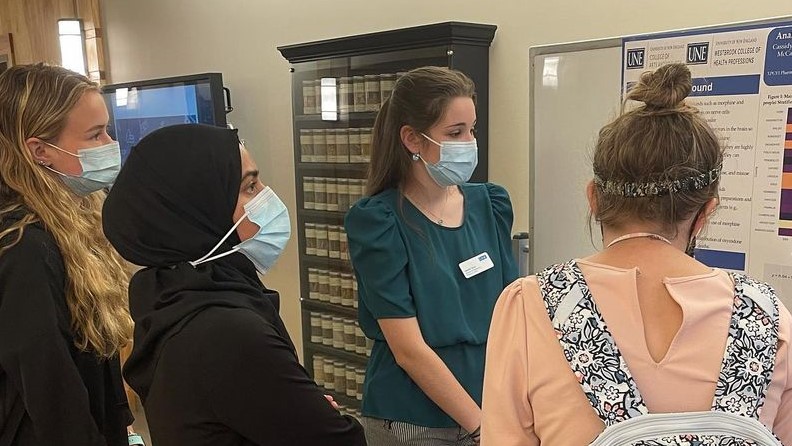Congratulations to our Summer Research Fellows – Spencer Canham, Joshua Carver, and Victoria Mitchell! The 2021 Dean’s Summer Student Research Fellowships were available for UNE pre-pharmacy and pharmacy students collaborating with SOP faculty on research/scholarship projects. The funding opportunity provided a $3000 stipend for the student and $1000 for the faculty mentor to cover project related costs, and was paid over the course of the project with final payment upon completion of the program deliverables.

Joshua Carver teamed up with Dr. Sydney Springer to address the topic of deprescribing in older populations. Carver stated that, “Studies that have been conducted have shown a significant portion of patients are willing to stop at least one medication if supported by their primary care physician, but only a few of these studies have been conducted in the United States (U.S.)”, and that the goal of this research is to “better identify candidates for deprescribing amongst community dwelling older adults and ultimately improve deprescribing approaches.”

“Plastic is forever. Since 2015, the Sutton Lab has been looking into the effects of nanoplastic on the gastro-intestinal tract. But we had never examined the effects of digested nanoplastic. Spencer Canham, this year’s Dean Summer Fellowship recipient, examined the effects of an in vitro digestion on the nanoplastic. This project was designed fill a gap in our research and provide us with a more physiologic picture of the impact of nanoplastic on our GI tract.”

Victoria Mitchell and her faculty mentor Dr. George Allen concentrated their research on a hot topic – infectious diseases, specifically antimicrobial resistance. They stated in their proposed abstract that, “Salmonella species are a leading cause of bacterial gastroenteritis, and infections caused by Salmonella species are responsible for billions of cases of diarrheal illnesses and represent a major cause of morbidity and mortality worldwide. Responsible bacterial species include Salmonella enterica serovar Typhi (Salmonella Typhi), the causative agent of typhoid fever. Unfortunately, antimicrobial resistance in Salmonella species has been increasing in recent years, and the optimal antimicrobial or antimicrobials to be used to treat typhoid fever is unclear. We hope that our results may be used to establish an ideal agent or agents for infections caused by S. Typhi.”

